by Monastic Brother Dai Luong
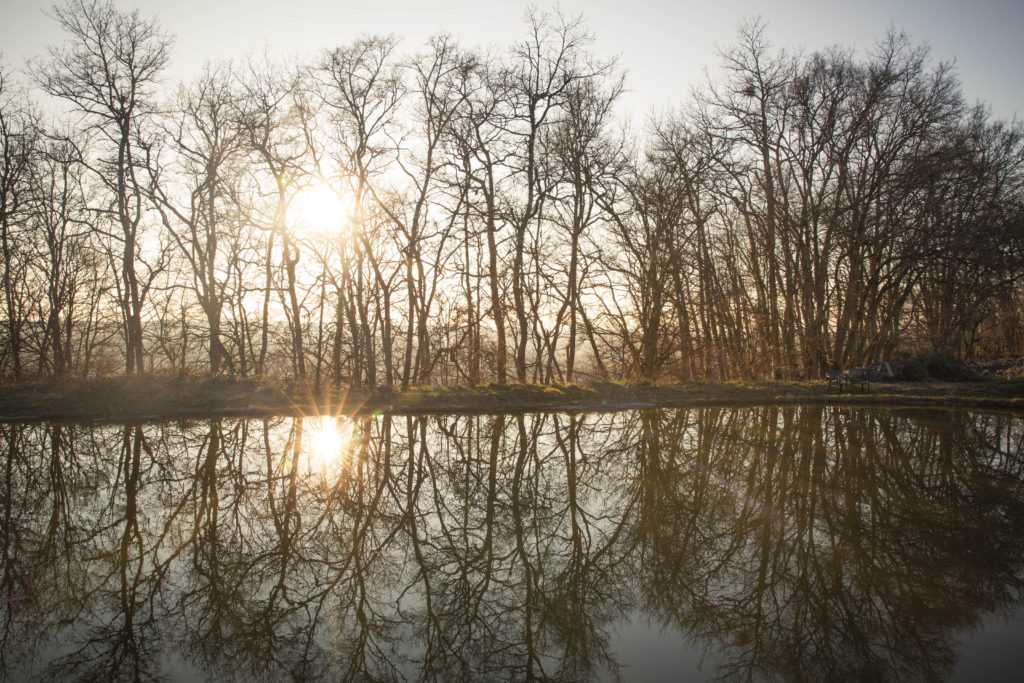
From an early age I was, as so many of us are, captured by the question of how to make this world a better place. I first fell in love with philosophy rather than with sociology and political economy. Activism, the history of revolutions, and models of societies became the content of endless hours of discussions among young friends. If it were not for playing basketball, chess, or talking about girls, a vast amount of time was spent strolling through the streets of Trier (yes, Karl Marx’s birthplace) and talking about ingenious ideas (yes, mostly socialist ones).
When I turned 18, I became very interested in different schools of psychology and spirituality. I had spent the last few years reading Fromm, Adorno, Camus, Dutschke, and Ziegler, fantasizing about the great change we could bring if only everybody would understand the great futility of modern capitalism. I also immersed myself with the same vigour in Lowen, Jung, Osho, and Krishnamurti, envisioning the paradise we could bring if only everybody would turn towards their inner world.
Since then I gained a little bit more balance and a lot more appreciation for complexity over simple solutions. One of the important milestones in this process is for me to learn more about climate change, a process that concerns us on all levels, and thereby bears the potential for deep internal looking as well as collective transformation.
The following essay I wrote is for my Brothers, Sisters, and friends in Plum Village.
Every generation has to undertake a struggle. Every generation has to engage with the difficulties of its time and, by engaging with these difficulties, humanity grows. Last winter, while walking amongst blooming trees and hummingbirds, we woke up to what may be the most fundamental challenge we are facing today.
Growing up in Ukraine and Germany, I carry in my heart unforgettable moments of walking through heaps of knee-height snow and sledge riding with my family. The winters were as they are described in our good old tales: cold and frosty; snowy and cozy. The family gathered under a Christmas tree for presents; nobody desired to leave the house because of freezing winds and slippery ice.
When I moved to France, I noticed the winters in this region are somewhat warmer, and snow is rare. However, this year hit a new mark. For the first time, I woke up on the 31st of December and went for a walk in the beautiful sunshine. As I looked at the trees, I saw them blossoming, and if you were lucky enough, you could see a caterpillar hiding amongst the tender leaves.
During the two preceding weeks, some Brothers were already walking around and feeling torn inside: on one side, we enjoyed the not too cold weather and the beautiful nature unfolding. On the other, we carried this slightly disturbing thought within us: this is not quite how it is supposed to be, is it? Something here is shifting. Nature is changing.
In some ways I felt like it was a veil lifting in front of my eyes – a veil obscuring the dramatic impact of what we are doing to our Mother Earth. And I know that if this kind of awakening occurred to us here, this is happening to many other people in other places and will happen to many more. As human beings, we have the tendency to realize things only if they hit us the most immediately. The Buddha did not leave home for homelessness because somebody told him about old age, sickness, and death. It took him a real encounter with the tragic dimensions of life for his quest to begin.
In January 2015, I have realized on a deeper level what people were telling me over the years concerning climate change. In a few days my attitude towards it shifted. I understood on a visceral level: it is happening. And the immediate question followed with the urgency of a koan: what can we do?
One of the aspects I treasure the most about our tradition is the commitment to an attitude of openness and learning. Rather than claiming that we have found some particular truth and thereby making it a doctrine, Thay encourages us to remember that “truth is found in life,” to refrain from every form of fanaticism however mild, and to be “ready to learn throughout our lives.”
Wherever I encounter such spirit of creativity, flexibility, and openness, whether it may be in a profound text like the 14 Mindfulness Trainings or in the hearts and minds of the people around me, something in me is delighted. When people don’t preach but share and exchange, a meeting of two souls becomes possible. And whenever a text is an invitation for contemplation and reflection rather than a top-down proclamation of what is and what isn’t, and what you should and what you shouldn’t do, the good seeds in the reader’s mind are inspired to flourish.
I firmly believe that this openness constitutes the ground to respond appropriately to whatever challenges we meet. Thich Nhat Hanh himself, for example, did not plan to become a famous poet and peace activist. But when the war came to Vietnam, he saw social engagement as the only response which enabled to express his compassion and care. His action embodied the wholesome qualities he had cultivated in his practice as a Buddhist, qualities described in one of Thay’s most touching poems about his fellow monk Thich Thien Minh:
… You were brave.
During the darkness of the night,
You transformed yourself into a lion king
And let out a powerful roar.
In the foggy night,
Tens of thousands of evil spirits
Heard your roar
And shivered,
Filled with fear.
But fearlessly,
You never stepped back,
Even while so many layers of traps and dangers
Were before us.
You looked calmly at the violence
As if it weren’t there.
What is the nature of life and death?
How could life and death pressure us?
You called my name with a smile. …
So what are the layers of traps and dangers before us? Doing some research, I found the issue around climate change and global warming most illustratively described in a few sentences by Tim Flannery, professor at the Macquarie University in Sydney:
“Of all the minerals recycled through the Earth’s crust, carbon is the most critical for this discussion. On planets without life, such as Mars and Venus, the great bulk of the atmosphere is made up of CO2. On our living planet, in contrast, CO2 is just a few parts per 10,000 of the atmosphere. The reason for the difference is that over the aeons, enormous quantities of carbon have been drawn into Earth’s crust, where today they remain in form of coal, oil, natural gas and limestone … The problem results in large part from digging up the dead – vast amounts of fossilized, once living matter in form of coal, oil and natural gas – and burning it. This liberates the ancient carbon that was once in living things, and allows it to reside again in the atmosphere and oceans.”
In other words, we are in the process of destroying the very condition that originally set apart the Earth from other planets and made life possible. We are destroying the biosphere needed to inhabit this planet. To protect our future and the future of our descendants, we need much more collective engagement. Organizations as www.350.org are leading the way.
Collectively we stand at the point of no return. We are provided with “boundless illustrations of conditioned arising made flesh, from the most intimate details of our own mental states to the most devastating accounts of melting polar ice caps. This vision is likewise able to awaken and fine-tune our moral sense. (Stephen Batchelor in After Buddhism: Rethinking the Dharma for a Secular Age)
Last year we had the highest temperatures ever to be recorded in several months. While in our part of the planet, this has not yet any dramatic consequences, but in other countries the damage is already clearly visible: floods; destroyed farms; threatened species; melting polar ice; etc.
As a Buddhist I aspire to act in a way that enables the flourishing of human life. I desire to find creative means to protect and sustain life. To do so I have to cultivate compassion and mindfulness. I have to make constant effort to heal, to transform and to change my relationship to the world. But I also have to acquire different skills and knowledge, especially in our high-speed society where everything I do here has a global impact. I want to understand more about how societies work, and how each institution and organization is co-dependent with others.







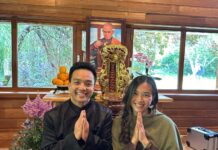










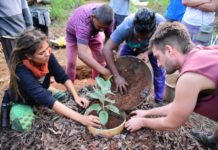
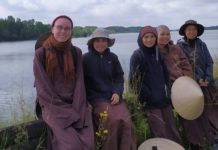
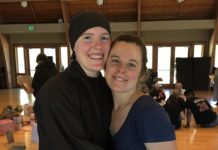
Nice article brother!
Thank you! 🙂
Thanks Brother for a well-written and helpful piece. Your paragraph reminding us about the “commitment to an attitude of openness and learning,” was especially good!